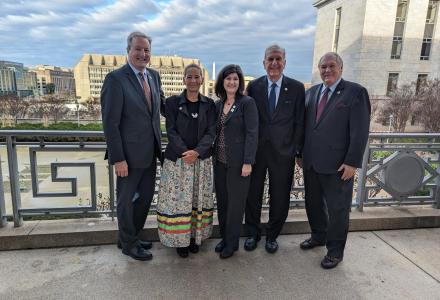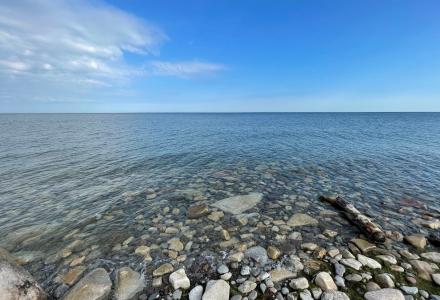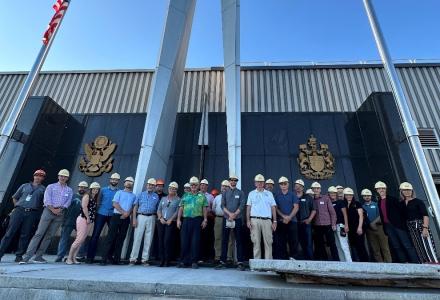
The International Association for Great Lakes Research was joined by eight other aquatic science societies for this year’s Joint Aquatic Sciences Meeting, held in May in Grand Rapids, Michigan. Known as JASM for short, the event included sessions throughout the week by board members and staff from the International Joint Commission (IJC).
The week began with the IJC’s Great Lakes Science Advisory Board discussing “Development of a Binational Decadal-Scale Science Strategy for the Great Lakes.”
As noted in a JASM program description, the science strategy was created to derive improved information and a better understanding for forecasting change, mitigating impacts and restoring ecosystem health. The session reviewed the work and solicited input on opportunities to advance, operationalize and fund a decadal science initiative and align it with other major binational science priority-setting efforts. Presenters included Drs. Val Klump and Bob Sterner, members of the IJC’s Science Advisory Board. A panel discussion concluded the session, moderated by the board’s US Chair, Dr. Lucinda Johnson.

Lucinda Johnson, US chair of the IJC's Science Advisory Board-Science Priority Committee, facilitates a panel discussion on the development of a decadal-scale science plan at the JASM event. Credit: IJC
IJC staffers also co-organized “A new community of practice for fishery and ecosystem services valuation,” including David Burden, director of the IJC’s Great Lakes Regional Office (GLRO), and Dr. Rajendra Poudel, an economist at GLRO. The discussion was designed to continue the momentum of an April 2021 workshop on fishery and ecosystem services valuation.
Starting today with the Great Lakes Science Advisory Board: https://t.co/YhPZi2ngkl
— IJC.org (@IJCsharedwaters) May 16, 2022
Another IJC-related session topic was “Recognizing community dimensions within coastal restoration and revitalization,” including a talk by Allison Voglesong Zejnati on “Hats and Spaghetti: How Group Membership Impacts Community-Based Ecosystem Restoration Progress.” Zejnati, public affairs specialist with GLRO, literally and figuratively wore her University of Michigan alumni hat for the presentation, discussing her master’s thesis on public involvement in the Areas of Concern program for cleaning up hot spots of legacy contamination in the Great Lakes.
The week ended with a Winter Science Symposium including members of the IJC’s Science Advisory Board (SAB) on “Understanding and adapting to changes in winter climate and freshwater ice across the spectrum of inland waters from the Laurentian Great Lakes to shallow ponds and streams.”
The symposium focused on the role of winter and ice in shaping inland aquatic habitats through physical, chemical or biological processes and the ramifications of changing ice patterns due to climate change. It was co-organized by SAB members Drs. Michael Twiss, a biology professor at Clarkson University in New York, and Maggie Xenopoulos, a biology professor at Trent University in Ontario.
An SAB-Science Priority Committee presentation also included a talk by Johnson, director of research with the National Resources Research Institute at the University of Minnesota Duluth, on “Designing a Framework for an Early Warning System for the Great Lakes.” It was part of a session on “Operationalizing the science: Collaborating to put ecological theory into practice.”
JASM, held in-person and virtually, was billed as the world’s largest-ever gathering of aquatic scientists, students, practitioners, resource agency and industry representatives. Organizers estimated that 4,000 scientists and environmental professionals attended the May event.
The conference was organized by the Consortium of Aquatic Science Societies, which includes the International Association for Great Lakes Research, American Fisheries Society, Association for the Sciences of Limnology and Oceanography, Coastal and Estuarine Research Federation, Freshwater Mollusk Conservation Society, North American Lake Management Society, Phycological Society of America, Society for Freshwater Science and Society of Wetland Scientists.

Jeff Kart is executive editor of the Shared Waters IJC newsletter and a contractor to the US Section of the International Joint Commission in Washington, D.C.




